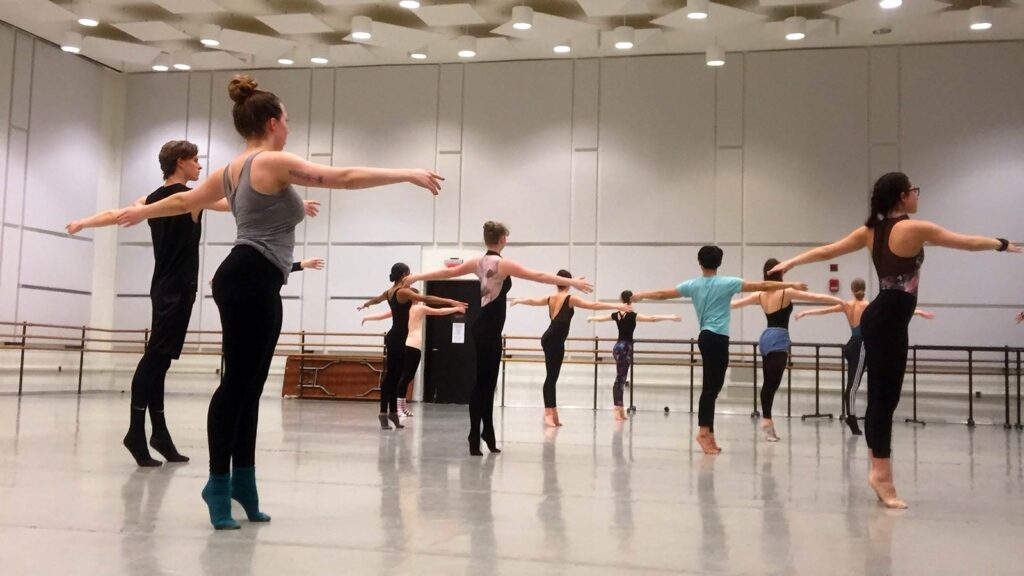Searching for the ideal school for your autistic child?
The full list of autism schools in Singapore that are appropriate for kids of all ages can be found here.
It is only natural for us to want to see our children’s needs addressed fully and their potential developed as parents and caregivers.
Children with ASD can better prepare for and lead fulfilled lives through education.
Related: 20 Top Autism Schools in Wisconsin & Their Websites
Your child’s communication, learning, and behavior can all be enhanced by choosing the correct school for them.
This gives children the ability to live more independently and enjoy a higher standard of living when they enter adulthood.
Read on to find out more about autism schools in Singapore.
What is Autism?
The word autism, often known as an autism spectrum disorder (ASD), is used to refer to a variety of neurodevelopmental problems.
Communication and social interaction patterns alter under certain circumstances. People with ASD frequently exhibit repetitive and constrained interests or behavioral patterns.
Regardless of race and nationality, culture, or economic status, ASD affects people everywhere. The Centers for Disease Control and Prevention (CDC) report that boys are diagnosed with ASD more frequently than girls.
There are signs that the prevalence of autism is increasing. Some say environmental factors are to blame for this surge.
Experts disagree on whether there has been a real increase in instances or if diagnoses have just become more common.
Symptoms of Autism in a Child
Between the ages of 12 and 24 months, early childhood is when ASD symptoms usually start to show themselves clearly.
However, signs could possibly show up sooner or later. ASD symptoms can be categorized into two groups:
- Communication and social interaction issues
- Patterns of behavior or activities that are restricted or repetitive.
A person must exhibit symptoms in both of these areas in order to be given an autism diagnosis.
Here is an example of a possible timeframe for this:
- Difficulty keeping eye contact from birth.
- By nine months, they are also not answering when called.
- By nine months, they are not expressing emotions with their faces (like surprise or anger).
- 12 months: incapable of playing simple interactive games.
- By a year: refraining from hand motions like waving or using them sparingly.
- When they are 15 months old, they are not socializing with others (by showing someone a favorite toy, for example).
- 18 months: no longer pointing or looking where others point.
- By age 24 months: failing to notice when others seem depressed or hurt.
- By 30 months: refraining from “pretend play,” such as looking after a doll or playing with figurines.
- Not playing by the age of 60 months.
Additionally, as early as 36 months, autistic children may struggle to communicate their emotions or comprehend those of others.
As they get older, they could have speech impediments or trouble speaking at all. The rate of language development in other autistic children may vary.
For instance, if they find a certain subject to be highly interesting, they may grow a very robust vocabulary for discussing that particular subject. However, they might have trouble talking to each other about other topics.
Children with autism may also speak in an odd tone when they first start speaking, which can range from high-pitched and “sing-songy” to robotic or flat.
Additionally, they could exhibit symptoms of hyperlexia, which entails reading material that is inappropriate for their age.
Younger than their neuro-typical peers, often as young as age 2, children on the autism spectrum may learn to read.
However, they frequently fail to understand what they are reading.
Research indicates that roughly 84 percent of children with hyperlexia are on the autistic spectrum, even though hyperlexia does not always go hand in hand with autism.
Patterns of behavior or activities that are restricted or repetitive
These may consist of:
- Rocking, flapping arms, whirling, or back-and-forth running are examples of repetitive motion some may exhibit.
- Arranging toys and other items in strict order, and becoming irate when the order is interrupted.
- Attachment to tight routines, such as those associated with going to bed or leaving for school.
- Repeatedly saying words or phrases that they have heard someone else say.
- Being irritated by petty adjustments.
- Concentrating closely on a certain component of an object, such as a doll’s hair or the wheel of a toy vehicle.
- Unexpected responses to tastes, scents, and other sensory stimuli.
- Obsessional passions.
- Extraordinary skills, such as musical aptitude or recall power.
Benefits of Autistic Schools
Special education might offer a variety of possible advantages depending on the kind of school or program. The important ones are listed here, albeit it’s not an entire list.
- Needed assistance: Students receive the assistance they require to maximize their educational experience.
This could involve changes, accommodations, or corrections.
- Teachers who are qualified: These schools provide teachers who specialize in special education.
- Differentiated instruction: Instruction is adjusted to each student’s particular needs in order to meet those needs.
- Services and resources that are unique: Services and resources that are unique may be offered.
This could involve learning aids, tutoring programs, speech-language therapy, physical and occupational therapy, and counseling for academic and psychological issues.
- Fitting in: Students engage and learn from peers who also face difficulties. Learning, developmental, behavioral, and physical difficulties may be included.
The List of Autism Schools in Singapore
To satisfy their developmental and intellectual needs throughout their educational journey, Singapore offers children with autism the choice to attend a number of educational institutions.
St. Andrew’s Autism Centre
Address: 1 Elliot Rd, Singapore 458686
Find out more information here.
Pathlight School
Address: 5 Ang Mo Kio Ave 10, Singapore 569739
Find out more information here.
Eden School
Address: 101 Bukit Batok West Ave 3, Singapore 659168
Find out more information here.
Related: 15 Top Dance Schools in Cape Town With Details
Metta School
Address: 30 Simei Street 1, Singapore 529949
Find out more information here.
APSN Chaoyang School
Address: 10 Ang Mo Kio Street 54, Singapore 569184
Find out more information here.
Genesis School
Address: 9 West Coast Rd, Singapore 127296
Find out more information here.
Fernvale Gardens School
Address: 7 Fernvale Rd, Singapore 797635
Find out more information here.
The Growing Academy Pte. Ltd.
Address: 166 E Coast Rd, Singapore 428872 9 Sin Ming Rd, #02-01, Thomson V, One, Singapore 575630
Find out more information here.
AWWA School
Address: 11 Lrg. Napiri, Singapore 547532
Find out more information here.
Related: 25 Top Autism Schools in Alabama & What They Offer
APSN Katong School
Address: 900 New Upper Changi Rd, Singapore 467354
Find out more information here.
Nurture Pods Pte Ltd – Centre for Child Development and Early Intervention
Address: 314 Thomson Rd, Eng Aun Mansion, Singapore 307659
Find out more information here.
Saint Clare School
Address: 10 Raeburn Park, #01-09, Singapore 088702
Find out more information here.
Rainbow Centre Yishun Park
Address: 15 Yishun Street 61, Singapore 768548
Find out more information here.
Grace Orchard School
Address: 170 West Coast Rd, Singapore 127443
Find out more information here.
Towner Gardens School
Address: 1B Lengkong Lima, Singapore 417557
Find out more information here.
Canossian School
Address: 1 Sallim Rd, Singapore 387621
Find out more information here.
ABC Center Singapore
Address: 318 Tanglin Rd, Unit 01- 42 Phoenix Park Office Campus, Singapore 247979
Find out more information here.
Melbourne Specialist International School
Address: 75C Loewen Rd, Singapore 248853
Find out more information here.
Healis Autism Centre
Address: 185B Thomson Rd, Goldhill Shopping Centre, Singapore 307629
Find out more information here.
The Early Intervention Centre
Address: 18 Ah Hood Rd, #06 – 52/54 Hiap Hoe Building, Singapore 329983
Find out more information here.
Mighty Oaks Learning Center Singapore
Address: 312A Tanglin Road 01-02 Phoenix Park Office Campus, Singapore 247982
Find out more information here.
Kits4Kids Special School
Address: Sunshine Place Blk 475, #02-09, 10 Choa Chu Kang Ave 3, Singapore 680475
Find out more information here.
Rise Up
Address: Robinson Rd, 160, Singapore 068914
Find out more information here.
All Hands Together
Address: 396 Joo Chiat Pl, Singapore 428079
Find out more information here.
Lighthouse School
Address: 51 Toa Payoh Rise, Singapore 298106
Find out more information here.
Cornerstone Learning Needs Centre
Address: 545 Orchard Road, Unit 08-08A Far East Shopping Centre, Singapore 238882
Find out more information here.
Quinn Special Needs Kids Support Centre
Address: 150 Bishan Street 11, Quinn Special Needs Support, Singapore 570150
Find out more information here.
NimbusMindz Educational Services
Address: 32 Choa Chu Kang Street 64, S(689099 #14-03, Singapore 689099
Find out more information here.
Integrated International School
Address: 41 Sunset Way, #01-01, Singapore 597071
Find out more information here.
Special Learners
Address: 58A Jln Jurong Kechil, JK Building, Singapore 598582
Find out more information here.
How to Cope With Autistic Kids
You can assist a youngster with autism spectrum disorder (ASD) in overcoming their difficulties in a variety of ways. This advice, therapies, and services for parents may be helpful.
- Study Up On Autism.
The more knowledgeable you are about autism spectrum conditions, the more able you will be to make choices for your child.
Ask questions, become knowledgeable about the available treatments, and take part in choosing your own treatment.
- Gain expertise in your child.
Find out what causes your child’s difficult or disruptive behaviors and what makes them go away. What frightens or stresses your child? Calming? Uncomfortable? Enjoyable?
Understanding how your child is affected will help you solve issues more effectively and prevent or alter challenging situations.
- Embrace Your Child’s Differences.
Practice acceptance rather than focusing on how your autistic child differs from other kids and what he or she is “missing.” Enjoy your child’s unique traits, acknowledge tiny victories, and refrain from comparing your child to others.
More than anything else, your child will benefit from feeling welcomed and loved unconditionally.
- Never Give Up.
The trajectory of the autism spectrum condition cannot be predicted. Don’t assume anything about how your child’s life will turn out.
People with autism have a lifetime to mature and hone their skills, just like everyone else.
- Be consistent.
Kids with ASD struggle to transfer their knowledge from one environment, like the classroom or therapist’s office, to another, like their home. For instance, your child might use sign language to communicate at school but never consider doing so at home.
The most effective strategy to support learning is to provide stability in your child’s environment. Learn what the therapists are doing with your child and use the same methods at home.
To help your child apply what he or she has learned from one environment to another, consider having treatment take place in more than one location.
- Follow a Schedule.
Children with autism typically perform better when they follow a routine or timetable that is very structured. This relates once more to the consistency they both require and desire.
Establish a routine for your child’s meals, therapy sessions, school hours, and bedtime. Try to limit the number of times this process is interrupted. If a schedule change is unavoidable, get your youngster ready for it in advance.
- Reward Good Conduct.
Make an effort to “catch them doing something good” because positive reinforcement can go a long way with children with ASD.
Be extremely explicit about the conduct you’re praising them for when you congratulate them when they behave appropriately or when they master a new ability.
Consider additional methods of rewarding them for excellent behavior, such as letting them play with a favorite item or giving them a sticker.
- Make Your Home A Safe Place.
Create a personal area in your home where your youngster may unwind, feel comfortable, and feel secure. This calls for structuring and establishing limits in a way that your child can comprehend.
Visual clues may prove useful (colored tape marking areas that are off limits, labeling items in the house with pictures). Additionally, you might want to safety-proof your home, especially if your kid is prone to tantrums or other self-harming behaviors.
Can Autistic Children Go To Normal Schools in Singapore?
If a child with ASD possesses the following cognitive skills, such as logic, working memory, and long-term memory, they can study for the Primary School Leaving Examination (PSLE) in either a conventional primary school or a Pathlight School.
How Many Special Needs Schools Are There In Singapore?
On the island, there are a total of 20 SPED schools, and each one provides customized learning plans for various child impairment populations.
Is Autism Common In Singapore?
ASD is estimated to affect 1% of the population in Singapore due to the absence of statistical studies to determine the prevalence rate locally.
Who Are At Risk Of Autism?
Despite the fact that researchers are still trying to determine why some people have autism while others don’t, risk factors could include an autistic relative. Seasoned parents.
A few genetic disorders, including the Rett, Down, and fragile X syndromes.
How Is Autism Diagnosed In Singapore?
A thorough evaluation that involves a thorough developmental history from the parents, observations made by your child’s therapist(s) and/or teacher(s), and direct observations by a psychologist serves as the foundation for an autism diagnosis.
Which Parent Carries Autism Gene?
Autism was long believed to have a maternal inheritance component because it is less common in women.
Research does, however, indicate that the father is mostly responsible for the more uncommon variations linked to autism.
Who Gets Autism The Most?
In comparison to girls, boys are four times more likely to receive an autism diagnosis.
Although autism may be accurately identified as early as age 2, the majority of children would still be receiving diagnoses after that age.
How Long Do People With Autism Live?
According to one of the most significant studies conducted in recent years, a person with severe autism has an average life expectancy of 39.5 years, whereas that figure rises to only 58 years for those with high-functioning autism, or Asperger syndrome.
How Can Autism Be Prevented?
Although there is no cure for autism spectrum condition, there are treatments available.
The best course of action is early diagnosis and intervention, which can enhance a child’s behavior, abilities, and language growth. Intervention, however, is beneficial at any age.
What Happens If Autism Is Not Treated?
Adults who have not gotten the proper care may find it difficult to live alone, be jobless, or struggle in their relationships.
Health, both physical and emotional, can be affected by autism.
Can Autism Be Fully Cured?
There is yet no full recovery from autism. The doctors will create a treatment plan specifically for each child to enhance their capacity for learning, social interaction, and other positive societal functioning.
Can Stress While Pregnant Cause Autism?
The risk of autism in offspring may also be increased by high amounts of stress during pregnancy.
When a parent is stressed between weeks 25 and 28 of pregnancy, this association seems to be most noticeable.
Can autism be detected before birth?
No, there isn’t a test like that for prenatal detection. A neurodevelopmental illness called autism spectrum disorder is characterized by recurring patterns of behavior or activities and persistent difficulties in communication and social interaction.


